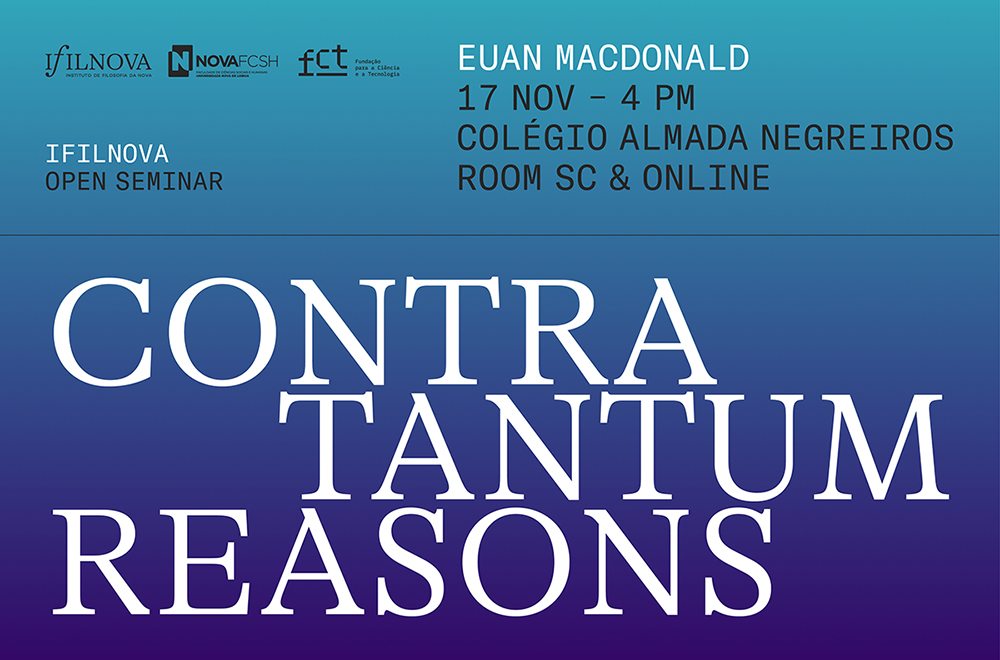Contra Tantum Reasons

The IFILNOVA Open Seminar heartily invites everyone to a talk by Euan MacDonald (University of Edinburgh) on joint work with Luís Duarte de Almeida (NOVA University Lisbon / University of Edinburgh).
Abstract
In this paper, we offer an account of reasons as facts that support ought-propositions; and we set this account against the standard account of reasons as facts that count either in favour or against something. After offering a characterisation of the support relationship, we show how the familiar notion of a pro tanto reason (a notion that can also be defined in the standard counting for/against terms) can be defined in support terms. Alongside pro tanto reasons, however, there are also, we suggest, what we propose to call contra tantum reasons: facts that support negative ought-propositions—propositions e.g. of the form “it is not the case that P ought/ought not to F”—without also supporting any positive ought-proposition. The notion of a contra tantum reason, unlike that of a pro tanto reason, cannot, we argue, be defined in the standard counting for/against terms. We then suggest the inability of the standard account to accommodate contra tantum reasons may help explain why some familiar issues in moral philosophy (e.g. issues involving supererogation) have appeared to be more puzzling than they are; and conclude by offering a new metaphor to replace the standard “balancing” one.
Everybody is welcome to join!
For online participation, please use the following link.
This event is organized by E. Rast. The purpose of this seminar series is to give researchers a platform to discuss ongoing work and problems in the philosophy of language, epistemology, argumentation, metaethics, and related areas. For administrative inquiries, please contact Erich Rast at erich@snafu.de.

